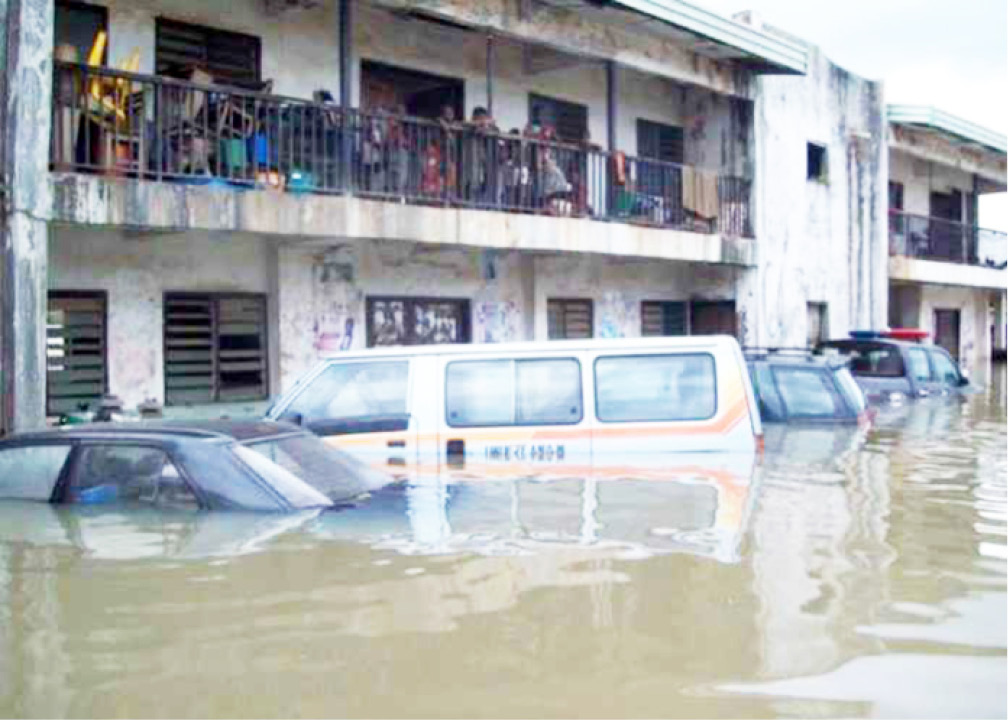How Nigeria can tackle perennial flooding
The incidences of flooding in recent years have been devastating and continue to pose a serious challenge to food production, food security, and livelihoods. The latest figures from the government, as of September 2022, estimate that more than 600 people have died and 1,546 injured and over 100,000 persons displaced by floods across Nigeria since […]

The incidences of flooding in recent years have been devastating and continue to pose a serious challenge to food production, food security, and livelihoods.
The latest figures from the government, as of September 2022, estimate that more than 600 people have died and 1,546 injured and over 100,000 persons displaced by floods across Nigeria since February 2022. In terms of widespread damage to homes and livelihoods, as many as 45,249 houses have been totally damaged and as much as 70,566 hectares of farmland and crops have been destroyed.
The first culprit of flooding is always the big word ‘Climate Change’, which is basically the changing weather patterns associated with global warming. It is obvious that the climatic conditions are changing, however, there are many related, natural, and man-made factors that contribute to flooding. I would want to begin with one major cause of perennial flooding in Nigeria which is ‘river and ocean surges’ majorly caused by tides pushing water to overflow its boundaries downstream. The sates around the major rivers like Benue, Kogi, Anambra, Adamawa, and others are the most affected. The rivers Niger and Benue overflow their boundaries into neighbouring communities basically because their depths are silted and shallow and not able to accommodate the volume of water that flows downstream and consequently runs off into the dry lands, causing flooding. Similarly, the ocean also experiences such overflows during heavy rains or winds. Meanwhile, in Nigeria, it has been confirmed that the excessive overflow of our water bodies is not necessarily a result of heavy rainfall but of the release of water from the Lagdo Dam in Northern Cameroon. So, because Nigeria does not have a buffer dam to accommodate the high volume of water that flows downstream, and the rivers have not been maintained over the years, the drylands are overrun by excess water causing flooding.
It is noteworthy to state that the National Emergency Management Agency (NEMA) and other associated agencies have been reactive in handling issues of flooding rather than being proactive, what is usually done can be described as post-disaster management. It is very sad that the regular pattern has been that NEMA waits until there is a disaster, then they go and distribute mattresses, foodstuffs, and paltry sums to the flood victims. The Nigerian Meteorological Agency (NIMET) releases regular weather data and predicts the rainfall pattern which is seldom used for planning by the agencies of government in charge of disaster management.
To forestall further threats to food security, the economy, health, security, and the environment, the government must adopt the following recommendations as a way to reduce the impact of perennial flooding in Nigeria. Firstly, NEMA must begin to act proactively by utilising geographical information systems and metrological data to improve their early warning systems and reduce people’s exposure to flood risk. The communication must be timely and effective and adequate provisions must be made in case of an emergency evacuation. Secondly, the federal government must begin to consider the construction of a buffer dam to accommodate excess water runoff upstream or from the Lagdo dam in Cameroon. This is very critical given that aside from dam absorbing excess water, a buffer dam will provide irrigation for thousands of hectares of land, stimulate capture fishing, and most likely support the generation of electricity. Thirdly, the government must invest in the dredging of the major rivers to accommodate high volumes of water, promote inland waterways as well as capture fishing. Finally, the government must build, reactivate, and maintain the urban drainage systems, and prevent people from erecting structures on waterways.
Godswill Aguiyi is the Programme Officer, Alliance for A Green Revolution in Africa -AGRA
